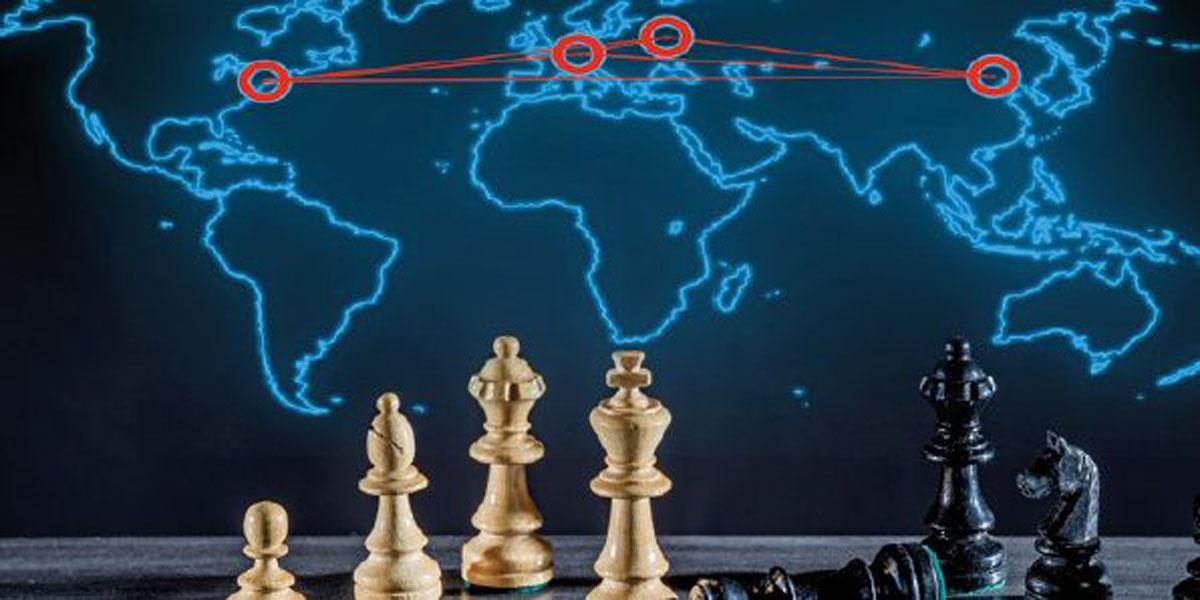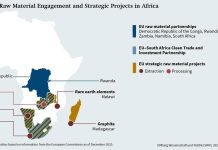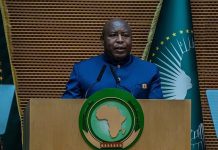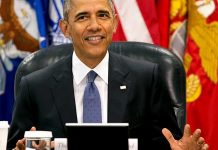Africa-Press – Mauritius. The Geopolitical Order is creaking and showing signs of fracture. That may be the understatement of the year, indeed of the last ten years. Certainly, even as the US has withdrawn forces from Iraq and Afghanistan, Russia’s engagement in Syria, and its violations of the sovereignty of Georgia and Crimea, China’s ever-burgeoning hostilities and threats towards Taiwan and India, and its hostile economic and military threats in the Pacific against Australia, the Philippines and Vietnam, Iran’s unstoppable move to acquire a nuclear weapons capability, and North Korea’s belligerence about its nuclear program and ongoing missile development suggest that using the word “order” when referring to today’s world is simply out of order.
Is there any hope that cooperation among the world’s nations, particularly the nuclear superpowers and those engaged in military skirmishes and wars can be wrought? Is it possible that sanity and reason might rescue us from the mess that has been created?
Whereas pointing fingers and assigning blame is generally not productive, one must understand where the fault lies, not necessarily to castigate one nation or another, but to sharpen our focus on where behavior needs to be changed.
Even if we can intelligently discern and assess who is responsible, we still have the problem that there is really no enforcement mechanism to bring nations around other than enlightened self-interest and the understanding that barring change, the world is hopelessly careening into unredeemable chaos.
America’s China policy: An abject failure
Let me start with President Richard Nixon’s overture to establish relations with the People’s Republic as the sole legitimate representative of the nation we all accept as China. Until then, Chiang Kai-shek’s Kuomintang had claimed China’s seat at the UN and in the Security Council.
It has often been written that the imperative to recognize the Chinese Communist Party (CCP) included at least the practical reality that one could not ignore a nation of 800 million people for long.
And, of course, the lure of exploiting the potential that a market of 800 million people left capitalists salivating. As President Nixon then said: “Taking the long view, we simply cannot afford to leave China forever outside of the family of nations.
.
. The world cannot be safe until China changes. Thus, our aim – to the extent we can, we must influence events. Our goal should be to induce change. ” American policy began with an abject failure.
Instead of insisting that Taiwan should be admitted immediately to UN membership as an independent nation, America fumbled and crumbled into the fiction that there was only one China and somehow, Taiwan was not independent.
To be fair, the Taiwanese themselves preached the mantra that they were the legitimate representatives of China, never mind that the rest of the world had laid that claim to rest.
The next US gaffe was when China was admitted to membership in the WTO. The US and its allies seem to have taken it for granted that China would somehow agree to comport its business practices with the norms and rules accepted by the “civilized world.
” China had other ideas. And we have seen how American manufacturing found its way to China.
To be fair, China invested hundreds of millions of dollars in building facilities and training of its work force to make this happen, but America’s corporate executives were blind to their own eventual loss of control over their supply chains.
Let us look at China. There has been little question of late that China’s GDP will exceed that of the US soon enough. The sheer size of its population and the inroads it has made in global manufacturing and trade have given China enormous leverage as its balance of payments turned positive and has remained so for decades.
There is no end in sight. Yet, China seems hell bent on maintaining an aggressive take-no-prisoners attitude with its unyielding domestic policies in Tibet, Hong Kong, against the Uyghurs, indeed against its own people writ large, and its unyielding push to control the South China Sea.
One wonders what the hurry is since China will get there in due course without much effort. But China is not content. Its conflict with India continues apace as its recent release of a map claiming Indian territory as its own is an unnecessary provocation.
China doesn’t seem to care much about provocation because its map also claims a part of Russia’s territory notwithstanding the seeming rapprochement between President Xi and President Putin that has been well publicized.
For More News And Analysis About Mauritius Follow Africa-Press







